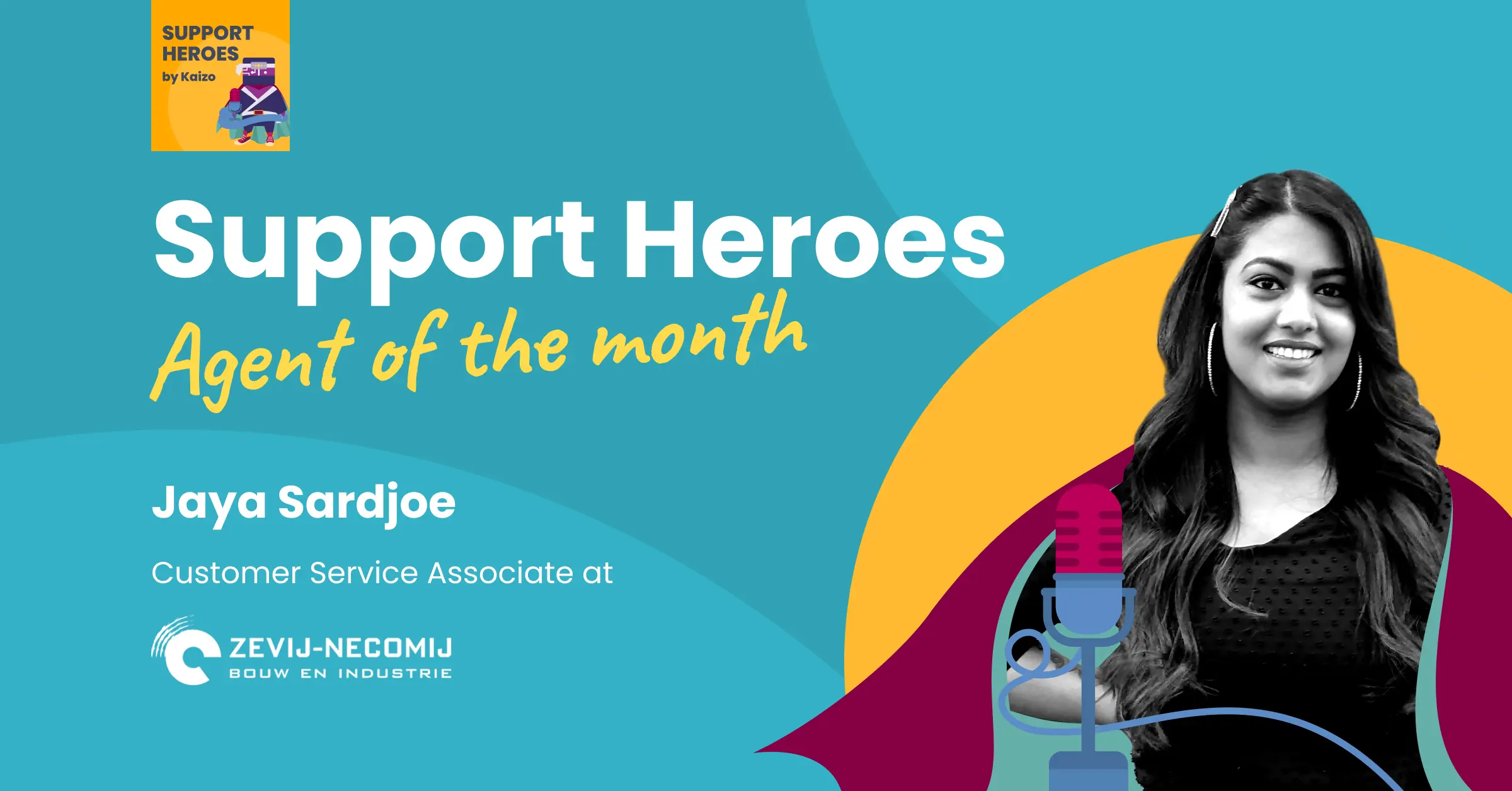Click ‘subscribe’ in the bottom right of the player to listen or download from Apple Podcast, Spotify, Google Podcast, and Amazon Music.
The twenty-fifth episode of Support Heroes by Kaizo featured Jaya Sardjoe- a customer support associate at Zevij-Necomij B.V..
In this episode, Jaya shares her experiences and lessons from her first two years working in customer support. At Zevij-Necomij, a dutch wholesale company, Jaya’s been guided and advised on how to succeed as an agent. She now shares these actionable and effective tips to help new customer support agents.
Don’t expect to satisfy every customer. Just do what you can.
- When Jaya first started, she would always be nervous for client calls. She would worry about how clients would react to her. Especially if the customer’s issue couldn’t be solved. She was able to overcome this by changing her expectations of client calls.
“I was told to go in blank because you never know how [customers] will respond”
- If there is a solution, great! If there isn’t, all Jaya can do is look for the best alternative and offer that to the customer. Regardless, the customer may be happy or unhappy. Jaya found success in focusing on how to solve problems and communicate effectively, rather than looking to always have a positive result.
Dealing with angry customers- let them talk. Make them feel heard.
“I was always scared of the mad customers to be honest…”
- To conquer this fear, Jaya’s supervisor gave her some easy steps to handle these difficult calls.
- First, let the customer talk. Let them get all their anger and frustration out. While they do so, write down exactly what they say and let them know you’re listening carefully. Jaya asks clarifying questions or quickly says “Yes. I get you.” to let the customer know she’s following them.
- Second, read back to the customer what you wrote down. This will make the customer feel heard and make sure that you understood exactly what the customer said.
“[Customers] react differently if they have the feeling they have been heard. If you actually listen to them, understand their problem and show you want to solve it”
- Third, you don’t need to always need to give the customer the answer. If you need some support and don’t have the solution, simply say, “I will get back to you on that”. It’s easier to figure things out when not on the phone to an angry customer and angry customers prefer not to wait on the phone. It’s a win-win.
Especially on rough days, speak to colleagues and seek advice.
“It was hard [to talk to my colleagues about my day] because I keep things to myself and normally when it keep things for myself I can explode”
- Everyone in support has rough days. It’s just part of the job. Jaya’s top strategy for staying positive on those rough days is speaking to her colleagues. Keeping things to oneself can be a natural habit but despite that, it’s still important to share.
“Maybe your colleagues will say, ‘Yeah, I have a tip for you’ or ‘Let it be. You don’t know what kind of day they’ve had. It’s not right what they’ve done but it’s not personal. You’re doing a great job’. Then I think ‘Ah, it’s okay’”
- Regardless of working from home or being in the office, Jaya will reach out to colleagues if she’s having a rough day. She also advises trying to make (at least) one close friend in your workplace so you can talk to someone on a more personal level.
Take responsibility over conversations but don’t take bad interactions personally
- There’s a fine line between taking enough responsibility over conversations to improve communication skills and taking so much responsibility that bad conversations get you down.
- When looking back over a negative interaction, perhaps think about how to make the customer feel more heard but also remember that customers have bad days too. Sometimes, an agent can do a perfect job and the customer still won’t be happy. That’s okay!
“Sometimes [customers] shout at you or have their voice higher than you expect. But 9/10 times when you call them back they say, ‘Sorry, that wasn’t meant for you but I’m a bit frustrated.’ So they apologise”
- Just remember the customer is frustrated about their issue or about other things happening in their day that you cannot control. An agent can only be helpful and polite, they can’t do anything about the other factors making customers unhappy.


